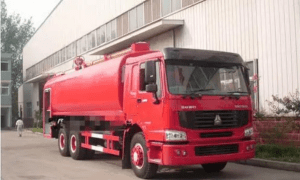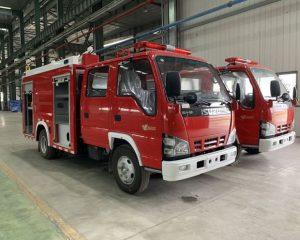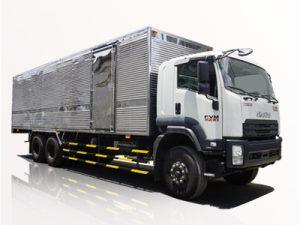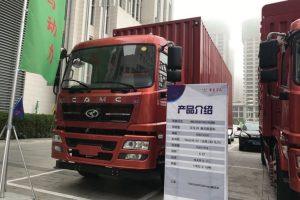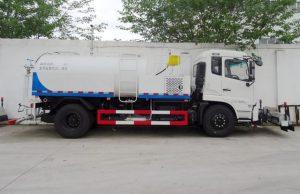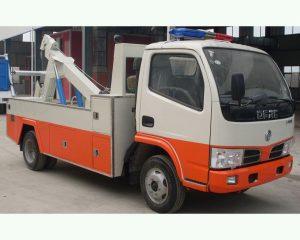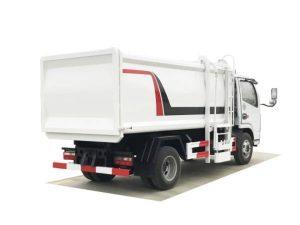Monday to Saturday - 8:00 -17:30
Iso Tankers for Sale: A Comprehensive Guide
Introduction
In the world of logistics and transportation, the need for safe and efficient shipping of liquid goods cannot be underestimated. Industrial companies are constantly looking for ways to optimize their operations, which brings us to the subject of iso tankers for sale. An iso tanker, or ISO tank container, is designed for transporting liquids and gases, making it an essential asset for various industries from chemicals to food products. This article serves as a detailed guide to understanding iso tankers, their benefits, considerations when purchasing, and tips for finding the right tankers for your business needs.
What is an ISO Tanker?
ISO tankers are standardized shipping containers designed specifically for transporting bulk liquids. They are manufactured to international specifications, allowing for easy integration into various shipping systems, whether by sea, rail, or road. Typically, an ISO tank is a stainless steel cylindrical vessel housed within a protective framework designed to facilitate loading, unloading, and securing.
Key Features of ISO Tankers
- Capacity: ISO tankers typically come in capacities ranging from 10,000 to 25,000 liters.
- Materials: Most are made of stainless steel, but variations exist for specific cargoes.
- Safety Features: Designed with safety in mind, they often include pressure relief valves and thermal insulation.
Types of ISO Tankers
Understanding the different types of iso tankers is essential for choosing the right one for your needs. Each type has its specific applications and advantages.
1. General Purpose Tankers
These are the most commonly used iso tankers, suitable for transporting various liquids, including chemicals and food-grade products.
2. Chemical Tankers
Designed specifically for the transport of chemicals, these tankers often feature specialized coatings or linings to prevent contamination and damage.
3. Food-Grade Tankers
These iso tankers adhere to strict hygiene standards and are designed for the transportation of edible liquids, such as juices, milk, and oils.
4. Gas Tankers
Used for carrying gases like propane or ammonia, these tankers are equipped with features to handle pressurized and cryogenic conditions.
Benefits of Owning ISO Tankers
Investing in iso tankers offers numerous benefits for businesses involved in liquid transportation.
1. Cost-Effectiveness
Purchasing your own iso tankers can significantly reduce rental costs over time, especially for companies that regularly ship large volumes.
2. Flexibility and Availability
Owning a fleet of iso tankers gives businesses greater control over their shipping schedules, ensuring they can meet deadlines without relying on third-party suppliers.
3. Improved Safety and Compliance
When you own the tankers, you can ensure they meet industry standards and are maintained correctly, which is crucial for safety and compliance with regulations.
Factors to Consider When Buying ISO Tankers
When looking for iso tankers for sale, it’s crucial to consider several factors to ensure you’re making a sound investment.
1. Intended Use
Determine what liquids you’ll be transporting. Each material may require specific types of tankers with different features.
2. Condition of the Tanker
When purchasing used iso tankers, assess their condition thoroughly. Look for any signs of wear, corrosion, or previous repairs that might affect performance.
3. Compliance with Regulations
Ensure that any iso tankers for sale meet the relevant safety and environmental regulations in your region. This includes checking for certifications like ISO 1496 and IMDG Code compliance.
4. Resale Value
Consider the potential resale value of the tanker. Some models retain their value better than others, so it pays to do your research.
Where to Find ISO Tankers for Sale
Finding quality iso tankers can sometimes be a challenge. However, several avenues can help you locate the right tanker for your needs.
1. Online Marketplaces
Websites such as TankContainer.com or ISOtankersforsale.com have vast listings of new and used iso tankers available for purchase.
2. Auctions
Industry-specific auctions can also be a valuable source for finding iso tankers at competitive prices.
3. Trade Shows
Attending logistics trade shows can provide networking opportunities and the chance to view different models firsthand.
4. Manufacturers and Dealers
Contacting manufacturers directly or working with specialized dealers can yield better options, as they may have exclusive models not widely listed.
Practical Examples of Using ISO Tankers
The practical applications of iso tankers can vastly differ depending on the industry. Here are a few examples:
1. Chemical Industry
A chemical manufacturing company utilizes iso tankers to transport solvents to clients. These tankers are specially designed with internal coatings to prevent contamination and ensure compliance with hazardous material handling standards.
2. Food Industry
A dairy company uses food-grade iso tankers for transporting milk from farms to processing plants. These tankers are regularly cleaned and maintained to meet sanitary regulations.
3. Oil & Gas Sector
An oil company employs iso gas tankers to deliver propane to distribution centers. The tankers are equipped with pressure relief systems to safely manage the gaseous cargo.
Costs Involved in Purchasing ISO Tankers
The cost of iso tankers can vary significantly based on several factors.
| Type of Tanker | Average Price Range |
|---|---|
| New General Purpose Tanker | $30,000 – $50,000 |
| Used General Purpose Tanker | $15,000 – $30,000 |
| Specialized Chemical Tanker | $40,000 – $80,000 |
| Food-Grade Tanker | $35,000 – $70,000 |
| Gas Tanker | $50,000 – $100,000 |
Maintenance and Care for ISO Tankers
Maintaining iso tankers is crucial in ensuring their longevity and safety. Here are some key maintenance tips:
1. Regular Inspections
Conduct routine inspections to check for leaks, corrosion, and structural integrity. This is essential for compliance and safety.
2. Cleaning Protocols
Establish a rigorous cleaning protocol, especially for food-grade tankers to prevent contamination. Use approved cleaning agents and ensure proper rinsing.
3. Document Maintenance
Keep detailed records of all maintenance and inspections. This documentation can be vital for resale and regulatory compliance.
FAQs About ISO Tankers
1. What is the average lifespan of an iso tanker?
The average lifespan of an iso tanker can range from 10 to 20 years, depending on usage and maintenance.
2. Can I rent iso tankers instead of buying?
Yes, many logistics companies offer iso tankers for rent, which can be a cost-effective solution for short-term needs.
3. Are there financing options for purchasing iso tankers?
Yes, many financial institutions provide loans or financing options specifically for the purchase of transport equipment like iso tankers.
4. How do I know if a used iso tanker is safe to use?
Always perform a thorough inspection and obtain service history to ensure it meets safety standards and regulations before purchasing.
5. Are there specific regulations for transporting hazardous materials in iso tankers?
Yes, different countries have specific regulations, including the IMDG Code and local transportation regulations. Ensure your iso tanker complies with these.
6. How can I increase the resale value of my iso tanker?
Maintain it well, keep detailed service records, and ensure it meets current safety and compliance standards to enhance its resale value.


